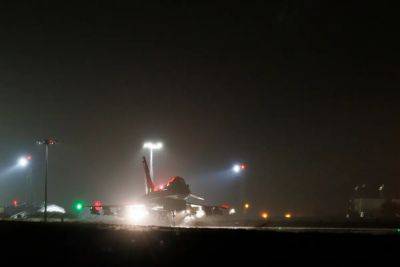U.S. and Iran Battle Through Proxies, Warily Avoiding Each Other
For all the fears of an outbreak of fighting in the Middle East that could draw the United States, Israel and Iran into direct combat, a curious feature of the conflict so far is the care taken — in both Tehran and Washington — to avoid putting their forces into direct contact.
No one knows how long that will last, American and European diplomats and other officials say. But 100 days into the conflict, the assessment of most of the key players is that Iran has pushed its proxies to make trouble for the American military and to pressure Israel and the West in Iraq, Syria, Lebanon and the shipping lanes of the Red Sea while going to some lengths to avoid provoking a larger eruption.
It is the most delicate of dances, rife with subtle signals, attacks and feints, and deniable action. The evidence of caution is piecemeal, but everywhere.
While Tehran has ramped up its production of uranium drastically in recent weeks, renewing fears that it may be speeding again toward the capability of fabricating several nuclear weapons, it has carefully kept just below the threshold for bomb-grade fuel. That is considered the red line that could trigger military action against its underground nuclear complexes.
When Israel struck a suburb of Beirut on Jan. 2 to kill a Hamas leader, it mounted a very precise attack — exactly the opposite of its campaign in Gaza — to avoid harm to nearby Hezbollah fighters. That allowed Israeli officials to make clear to Hezbollah, the terrorist group funded and armed by Iran, that it had no interest in escalating the tit-for-tat strikes on Lebanon’s southern border. (Six days later it did kill Wissam Hassan Tawil, a commander of Hezbollah’s most elite force, the most senior Hezbollah officer killed thus far.)
A







